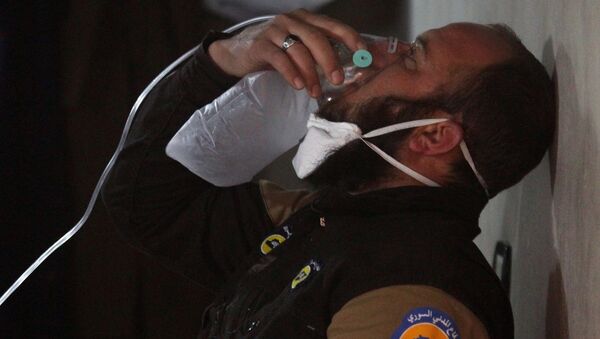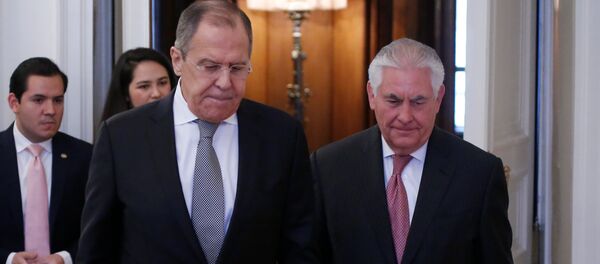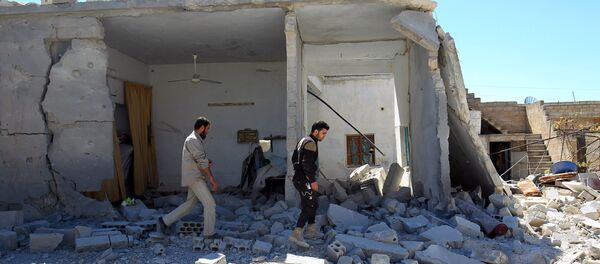On Wednesday, the OPCW fact-checking mission investigating the alleged use of chemical weapons in Khan Sheikhun said it had found traces of sarin in the victims' bodies. The next day, the OPCW rejected the Russian and Iranian proposal to investigate the suspected chemical weapons incident in Syria’s Idlib.
"This is strange, because the decision did not stipulate anything other than to conduct an independent, impartial, transparent investigation with an expert visit to the site," Lavrov said following talks with EU foreign policy chief Federica Mogherini.
Russia expects the international chemical weapons watchdog to send experts to Syria to investigate this month's US attack on a government military airfield and a reported chemical weapons incident, Lavrov said.
"We will expect that after all, the Organization for the Prohibition of Chemical Weapons [OPCW] will send experts to Khan Sheikhoun and to the [Sha'irat] airfield strictly on the basis of its mandate, which requires the widest possible geographical representation of experts," Lavrov said.
He expressed hope that the OPCW investigation would be transparent "and not cloaked in any secret from member countries that pay for the work of this mechanism."
Earlier, Lavrov said Moscow was using its relations with Damascus to encourage the Syrian government to fully cooperate with the OPCW which announced in January 2016 that it had destroyed Syria’s chemical weapons arsenal in accordance with an agreement reached after the 2013 Ghouta attack.



